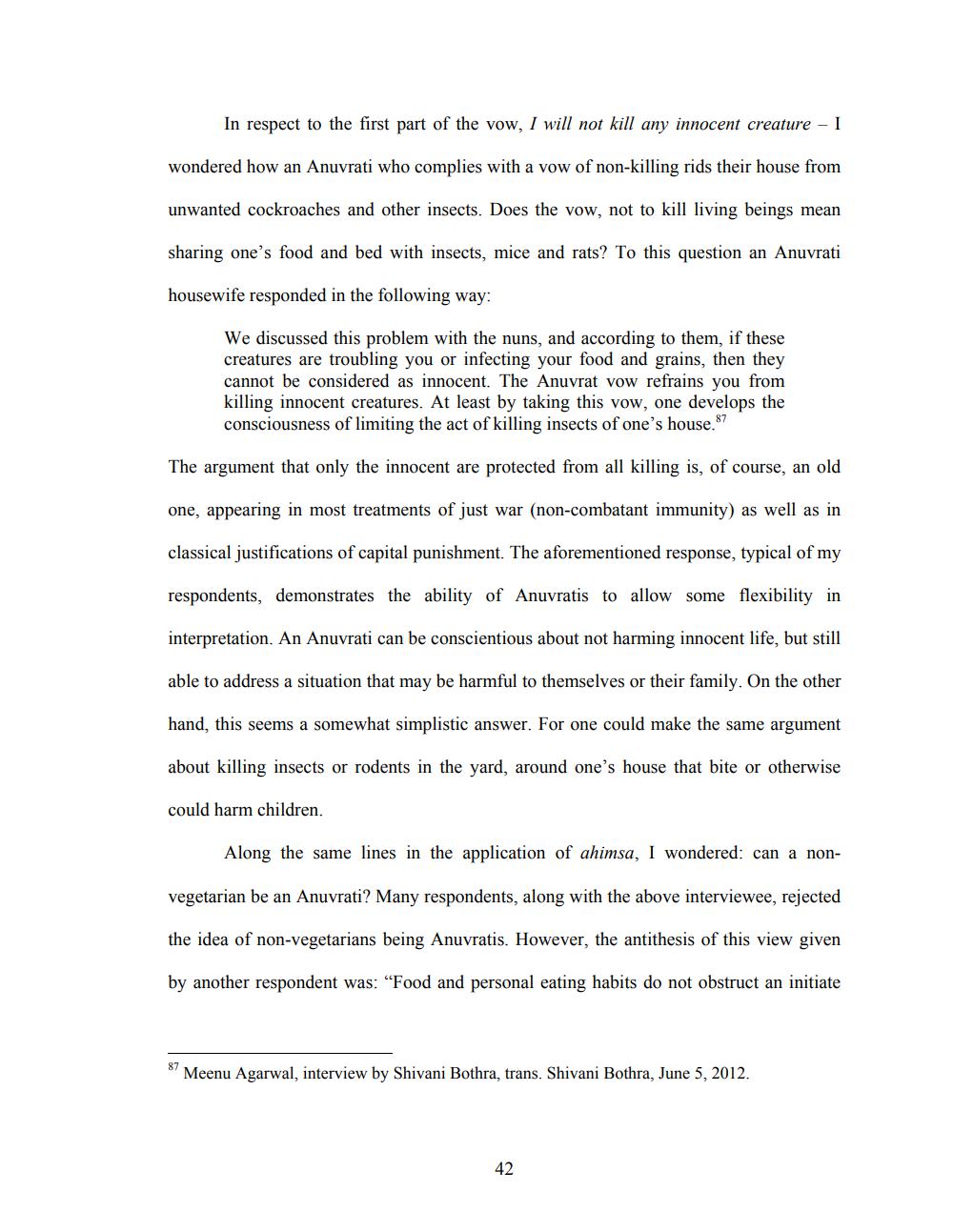________________
In respect to the first part of the vow, I will not kill any innocent creature - I
wondered how an Anuvrati who complies with a vow of non-killing rids their house from
unwanted cockroaches and other insects. Does the vow, not to kill living beings mean
sharing one's food and bed with insects, mice and rats? To this question an Anuvrati
housewife responded in the following way:
We discussed this problem with the nuns, and according to them, if these creatures are troubling you or infecting your food and grains, then they cannot be considered as innocent. The Anuvrat vow refrains you from killing innocent creatures. At least by taking this vow, one develops the consciousness of limiting the act of killing insects of one's house.87
The argument that only the innocent are protected from all killing is, of course, an old
one, appearing in most treatments of just war (non-combatant immunity) as well as in
classical justifications of capital punishment. The aforementioned response, typical of my
respondents, demonstrates the ability of Anuvratis to allow some flexibility in
interpretation. An Anuvrati can be conscientious about not harming innocent life, but still
able to address a situation that may be harmful to themselves or their family. On the other
hand, this seems a somewhat simplistic answer. For one could make the same argument
about killing insects or rodents in the yard, around one's house that bite or otherwise
could harm children.
Along the same lines in the application of ahimsa, I wondered: can a non
vegetarian be an Anuvrati? Many respondents, along with the above interviewee, rejected
the idea of non-vegetarians being Anuvratis. However, the antithesis of this view given
by another respondent was: "Food and personal eating habits do not obstruct an initiate
* Meenu Agarwal, interview by Shivani Bothra, trans. Shivani Bothra, June 5, 2012.




